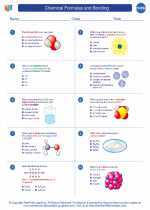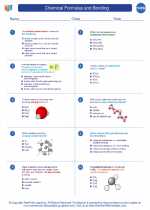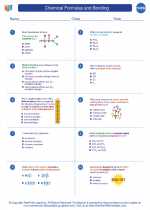Durability in Chemistry
Durability in chemistry refers to the ability of a substance to withstand chemical and physical changes over time, as well as its resistance to degradation or decomposition. This is an important property to consider when selecting materials for various applications, such as construction, packaging, and manufacturing processes. Understanding the factors that influence durability, as well as the methods to improve it, is crucial in the field of chemistry.
Factors Affecting Durability:
- Chemical Composition: The type and arrangement of atoms in a substance play a significant role in its durability. For example, materials with strong covalent or ionic bonds tend to be more durable than those with weaker bonds.
- Environmental Conditions: Exposure to factors such as temperature, humidity, light, and chemical substances can impact the durability of a material. For instance, some polymers may degrade when exposed to UV radiation, leading to a decrease in durability.
- Microstructure: The internal arrangement of atoms and molecules within a material can influence its durability. For instance, the presence of defects or impurities can weaken the material and reduce its durability.
Ways to Enhance Durability:
- Material Selection: Choosing materials with inherently durable properties is crucial for long-term performance. For example, stainless steel is known for its corrosion resistance and durability, making it a popular choice in various industries.
- Surface Treatments: Applying protective coatings, such as paints, varnishes, or corrosion inhibitors, can enhance the durability of materials by providing a barrier against environmental degradation.
- Polymer Modification: Modifying the chemical structure of polymers through processes like cross-linking or adding stabilizers can improve their durability, making them suitable for applications requiring long-term stability.
- Environmental Control: Managing the exposure of materials to harsh environmental conditions can help maintain their durability. For instance, storing sensitive materials in controlled environments can prevent degradation.
Study Guide:
To understand the concept of durability in chemistry, students should focus on the following key areas:
- Chemical Bonds and Structure: Learn about the different types of chemical bonds (ionic, covalent, metallic) and their impact on the durability of materials.
- Factors Affecting Durability: Explore how environmental conditions, microstructure, and chemical composition influence the durability of materials.
- Case Studies: Analyze real-world examples of durable materials and the factors that contribute to their long-term performance.
- Material Modification Techniques: Understand how surface treatments, polymer modifications, and material selection can be used to enhance durability.
- Testing and Analysis: Explore the methods used to assess the durability of materials, such as accelerated aging tests, corrosion tests, and mechanical property evaluations.
By mastering these concepts, students can gain a comprehensive understanding of durability in chemistry and its practical applications in various industries.
.◂Chemistry Worksheets and Study Guides High School. Chemical Formulas and Bonding
Worksheet/Answer key Chemical Formulas and Bonding
Chemical Formulas and Bonding  Worksheet/Answer key
Worksheet/Answer key Chemical Formulas and Bonding
Chemical Formulas and Bonding  Worksheet/Answer key
Worksheet/Answer key Chemical Formulas and Bonding
Chemical Formulas and Bonding 

 Worksheet/Answer key
Worksheet/Answer key
 Worksheet/Answer key
Worksheet/Answer key

The resources above cover the following skills:
PHYSICAL SCIENCE (NGSS)
Matter and Its Interactions
Students who demonstrate understanding can:
Plan and conduct an investigation to gather evidence to compare the structure of substances at the bulk scale to infer the strength of electrical forces between particles.